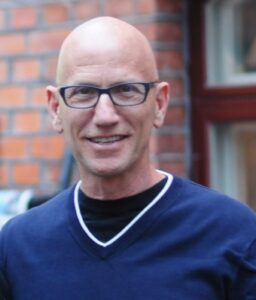Much of what we do, we do to make ourselves happier. Sometimes we do things just to be okay.
We expend a lot of energy every day in this pursuit. So, the question is, if we are so devoted to
making ourselves happier, why do we often experience unhappiness? Why after years of this
pursuit have we not become ecstatic beings?
Our judgments about what will make us happier or more okay are based on our memories of past
experiences. We use these memories to project what will make us happy in the future. When we
try to create what we remember made us happy, several outcomes may occur. Perhaps you
remember having a wonderful dinner at a nearby restaurant. You go back to that restaurant and
order the same dish, but this time it is not as good as you remember, or the service is not as good,
or the restaurant is noisier. There is a good chance that your attempt to recreate the happiness
that you remember will not only be unsuccessful but may actually result in disappointment.
Imagine that you are feeling a little blah. You realize that the ice cream you really like is in the
freezer. You eat a bowl of the ice cream, and you enjoy it. But all too soon, the bowl is empty, so
in an attempt to extend the “happiness”, you have another bowl. However, the second bowl does
less for you than the first. This is the law of diminishing returns. You may even eat enough so
much that you feel uncomfortably full–not the experience you were aiming for.
The most extreme outcome of trying to recreate your memory of happiness (or okayness) is
addiction. Whether it is addiction to alcohol, drugs, gambling, sex or even chocolate, it starts by
trying to recreate your memory of a prior state and then doing so repeatedly to the point that
okayness is dependent on it. Even if we do not succumb to addiction, the outcomes we have been
discussing are less than satisfactory, often fleeting, and may actually lead to unhappiness.
So far, we have been talking about attempts to recreate a single experience based on a memory.
However, we spend each day trying to obtain and create all that we believe will make us happy
or okay while also avoiding all that we fear. We are busy trying to control all the factors that
appear to affect our happiness. The job is overwhelming and creates several problems. First, we
never succeed. We never reach a point at which we have all these factors just the way we want.
We never achieve the envisioned happiness and dispense with the fear. Second, this constant
struggle to control all of these factors creates stress in our lives.
Another problem is that seeking happiness is focused on the future. Seeking implies finding or
creating something that we do not have in the present. Our seeking to be happy or okay in the
future is an ongoing affirmation that we are not happy or okay now. We are practicing not being
okay in each moment. Continually practicing not being okay seems like a questionable way to
become okay. Like anything else, what we practice, we develop.
We all have conditions that we believe will make us happy. But what happens when we do
achieve one of these goal conditions? Are we endlessly happy with no more fear or stress?
Generally, we have a very brief period of positive feeling and then we go back to normal with
fears, stress and insecurity reigniting the search for what will make us happy.
Another reason pursuing happiness does not work is that the world exists in polarity—day and
night, life and death, inhale and exhale. The mind tries to split this polarity and create a duality,
endeavoring to get what it likes and avoid what it dislikes. But we never just get what we like.
We never just get one half of the polarity. For example, if you meet someone and say, “This is
the person that makes me happy, and I want to spend my life with this person”, what comes with
it? There’s the fear of what if this person dies or leaves me? Everything intended to make us
happy comes with what will make us unhappy.
So, does this discussion mean that we should not do things we enjoy? No, of course, we do
things we enjoy. The question is, what is driving our choices? It is not the choice we make that is
the problem; it is making choices to be okay or to be happier that is the problem. There is an
important difference between finishing a meal with a piece of chocolate and indulging in
chocolate in an attempt to change our sense of not being okay.
This whole enterprise of trying to be happy, okay, or relatively better is fraught with difficulties
for all the reasons discussed. So, what is the alternative? Up to this point in this article, I have
referred to you and we as the entities that are engaged in the pursuit of happiness. However, the
alternative to this unproductive pursuit requires each of us to recognize that I am not that entity.
That entity is the ego mind. I am the consciousness–conscious of the mind’s effort to seek
happiness. It is the mind that engages in the unproductive pursuit of happiness. It is the mind that
is busy trying to control all of the “happiness (and unhappiness) factors”. But if we are not the
mind, we are not trapped in this ill-conceived enterprise. We can be aware of what the mind is
telling us and not buy into it. We can let those thoughts pass as if they are the advice of an
unhelpful neighbor. By witnessing the mind, we let go of our identification with the mind. This
has two relevant effects. First, by letting go of the mind, we free ourselves from the unproductive
pursuit of happiness. Second, when we witness the mind, we know ourselves as the
consciousness, the being that is aware of the mind’s activity. And consciousness is inherently
okay, joyful, and at peace in the present.
 Marty Simon (Govind) is a retired professor of education living in Colorado. He first was
Marty Simon (Govind) is a retired professor of education living in Colorado. He first was
in Gurudev’s presence in 1990 and became a disciple in 1993. He leads an online
meditation group in which he gives spontaneous talks on topics of spirituality in our
lives. This article derived from one of those talks.
A Youtube channel, Spirituality for
Effective Living, is under construction that will give access to talks and related articles.
